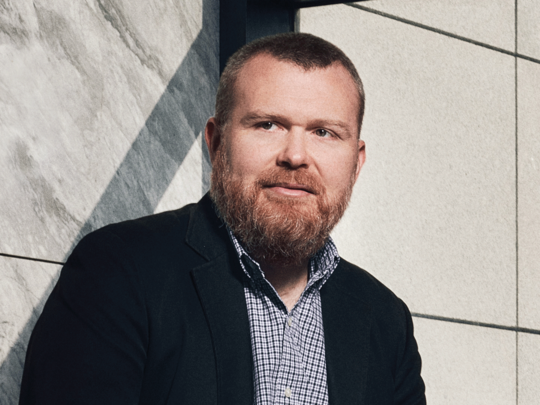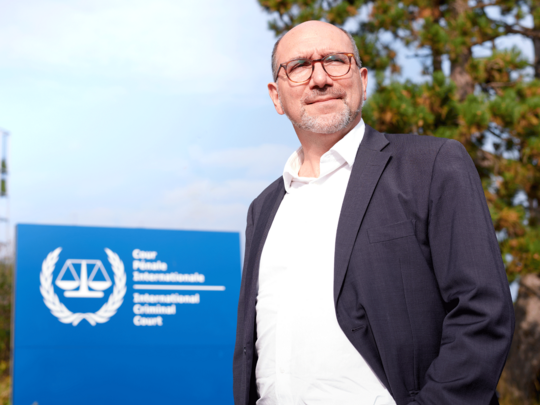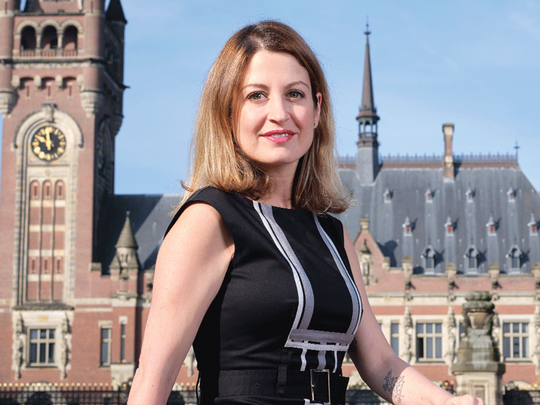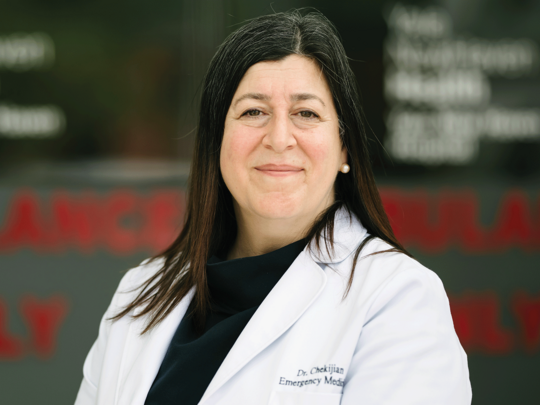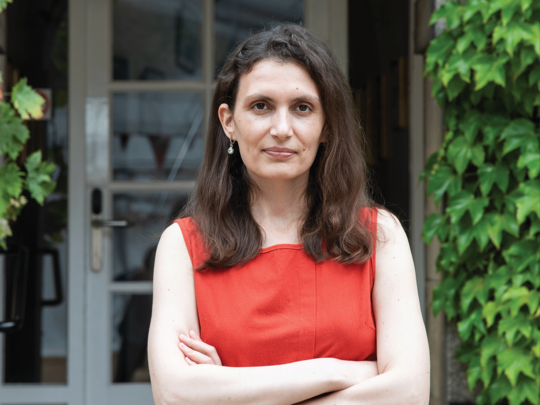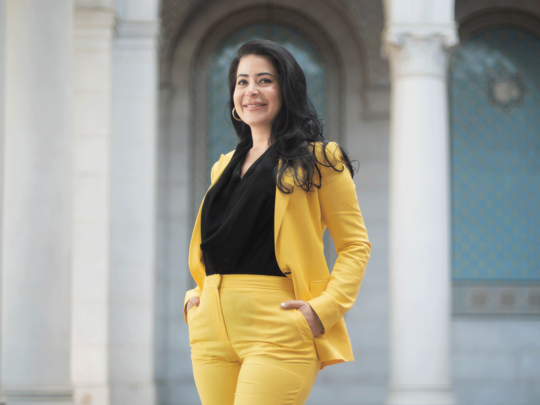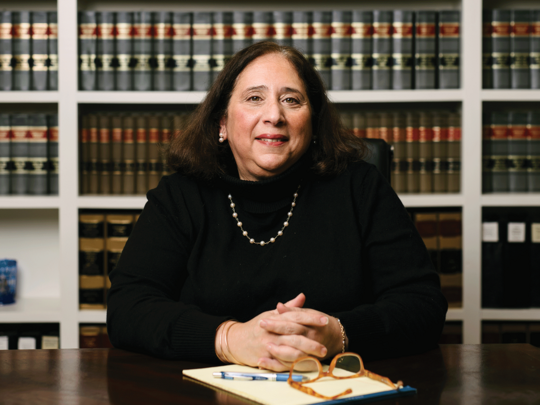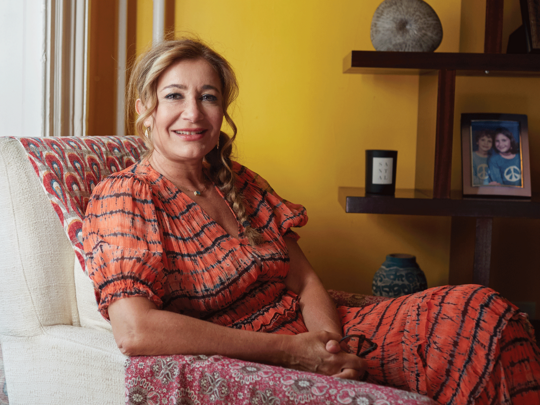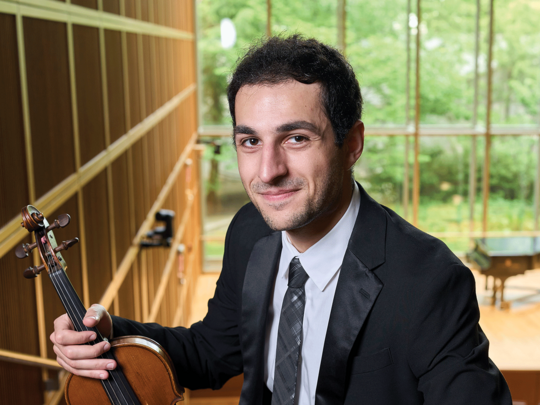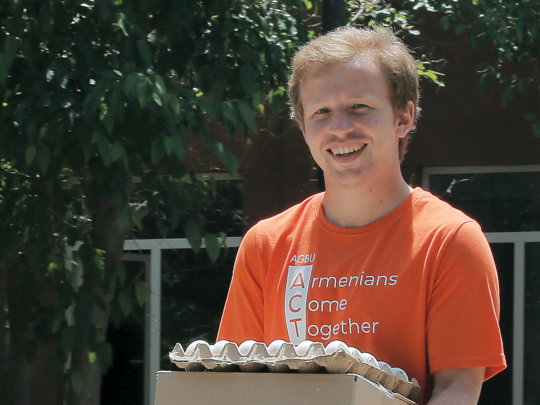During a hectic afternoon, José Geozucaraian takes a moment to pick up a call from a fellow AGBU volunteer. Between managing his two construction businesses, GEO Construcciones and Arquifoam, he is always ready to support however he can.
An alumnus of the AGBU Scouts program, he suspects he inherited this sense of duty from his parents, Hosanna Bardakchian and José Geozucaraian. Descendents of Armenian Genocide survivors from Marash, they were instrumental in establishing opportunities for Uruguay’s spirited Armenian community to connect through AGBU. In fact, Geozucaraian Sr. established Erevan 50 Scouts, which at one time was recognized as the largest scouting movement in the country, and a program that had a lasting impact on his son.
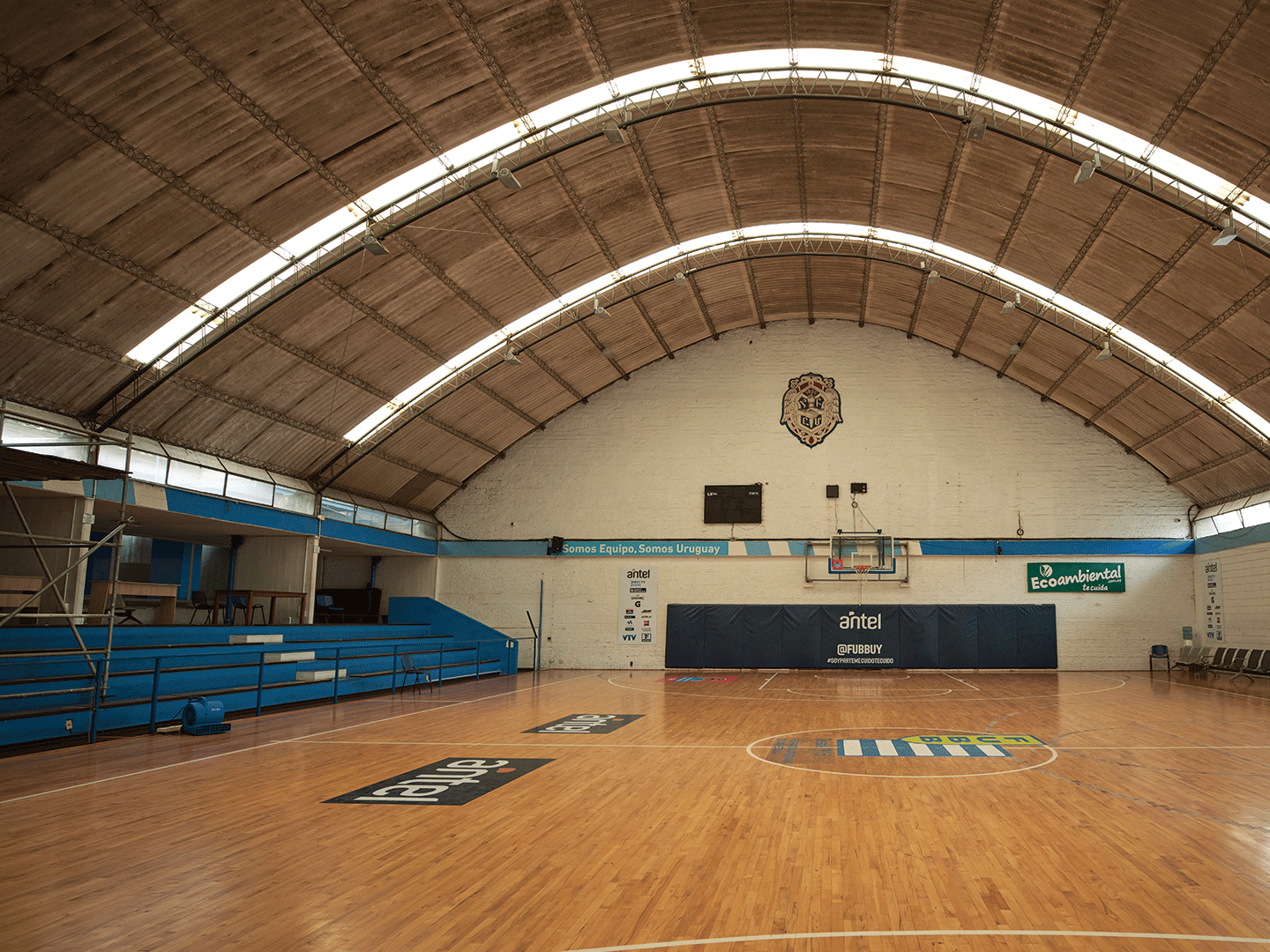
“The guiding principle of scouting, mishd badrasd [always ready], has been the guiding principle of my own Armenian identity,” he admits. It has served him well. Now a respected leader in AGBU Uruguay in his own right, Geozucaraian is certainly not one to back down from a challenge.
The economic turmoil that gripped Uruguay at the turn of the century impacted the continuity of investment and engagement from the Armenian community. Though still unified, AGBU Uruguay was in dire need of a new strategy to optimize its existing resources and develop new ones. In 2013, along with peers that grew up within the organization, Alejandro Danielian, Daniel Barsamian and Benjamin Kemanian, Geozucaraian decided to form a new Board of Directors.
“We inherited a wealth of opportunity from our parents’ generation and, along with it, the responsibility of being worthy custodians,” he explains. Serving as Vice President from 2013-2017 before being elected President in 2017, Geozucaraian championed long-term institutional projects. The new board turned its attention to renovating the beloved Misak Kouyoumdjian Sports Center. Leveraging Geozucaraian’s expertise in construction, the center was transformed into a state-of-the-art training facility and contracted by the Uruguayan State to train its national basketball federation. Not only did this become a way to raise funds for the AGBU Nubarian-Manoogian School, it also raised the profile of the Armenian community in Uruguay— figuratively and literally opening doors and inviting the broader public in.

With a population of over 30,000, the Armenian community of Uruguay has historically been considered one of the most significant immigrant communities in the country, beloved in popular culture and acknowledged in civil society. In fact, it was Uruguay that first recognized the Armenian Genocide on the global stage in 1965. Today, the community is composed of fifth and sixth generation Armenians, seamlessly integrated into Uruguayan culture. Because most of them do not encounter significant cultural barriers to society, they are often less likely to seek out Armenian community spaces and the threat of assimilation and so, indifference, looms.
Despite this, Geozucaraian is far from discouraged. “At both a personal and institutional level, this threat has been the greatest motivation to innovate and ensure a generational continuity.” Perhaps it is his lifelong work in construction or the innate characteristic of Armenian hospitality, but Geozucaraian has led this charge by rethinking how communal spaces can be utilized to create opportunities for connection.
In addition to the physical renovation of the Misak Kouyoumdjian Sports Center, AGBU Uruguay has been focused on revitalizing social spaces through its programming. Most recently, it launched UGAB TECH, an initiative focused on arming students aged 12-18 with a command of innovative technologies, namely computer programming, robotics, design, and communications.
“We want the youth to feel that AGBU is a place where they belong and also a place that belongs to them,” he asserts. With this consciousness around safe and inviting spaces, AGBU Uruguay is reviving a natural ecosystem in which, for example, a student at the Nubarian-Manoogian School can also attend Scouting events on the weekends and later access computer classes at UGAB TECH. While explicitly Armenian subjects and themes are available, the main attraction for youth is a sense of community and a natural access to resources. The invitation is extended to their families as well. “The idea is to invite guests into our home and make them feel like family by the end of their stay,” Geozucaraian explains.
The idea is to invite guests into our home and make them feel like family by the end of their stay.
Thinking back to his AGBU Scouts days, Geozucaraian knows firsthand how essential it is to feel at home in a space and how fertile that ground is for collaboration. “Not only did my peers and I grow up under the same roof,” he reminisces, “we were always encouraged to pursue our passions with the community behind us.” In fact, the illustrious Erevan 50 Orchestra was founded by Geozucaraian and his fellow scouts. Their instruments were bought and Armenian folk music lessons provided by the community, recognizing this as a way to invigorate the youth. The Erevan 50 Orchestra would go on to collaborate with Armenian musicians both locally throughout South America and globally, performing at the famed Opera Theater in Yerevan. In the aftermath of the first Artsakh War, the Orchestra would even visit Artsakh and play for the hundreds of soldiers on the frontlines. Continuing to compose original music and perform classics, it is still active today.
This open invitation approach has expanded beyond the Armenian community. AGBU Uruguay has taken monumental steps in pioneering access to Armenian language within the Diaspora by strategically partnering with Uruguay’s National Administration of Public Education (ANEP). With classrooms packed with eager students and interest growing each year, Armenian language instruction is now available throughout the country at a national level and the impact of Armenian culture on Uruguayan society continues to be amplified. “This initiative is not just about access,” Geozucaraian explains, “it’s about sharing cultural wealth with a community that has historically embraced Armenians.”
In the decades since he first donned his Erevan 50 Scouts uniform, Geozucaraian has never abandoned the guiding principle of unity even in the face of hardship. “The strength of our communities in the Diaspora are an asset to our global Armenian nation,” he maintains. “Unified, we can do so much more for one another as a people and a culture.” Still at the helm of AGBU Uruguay’s leadership, heading its Fiscal Commission since 2019, Geozucaraian is acutely aware that he is a custodian of a cherished legacy and he is mishd badrasd to pay it forward.
Banner photo by Tali Kimelman.


